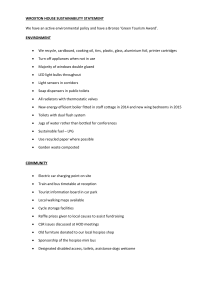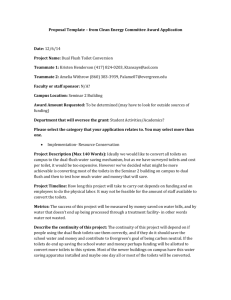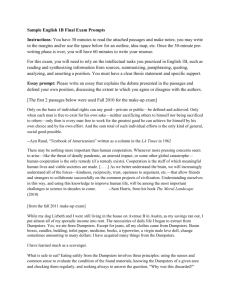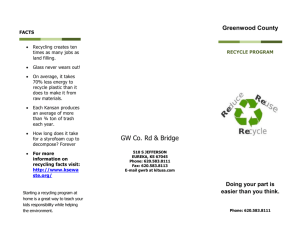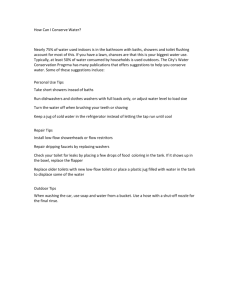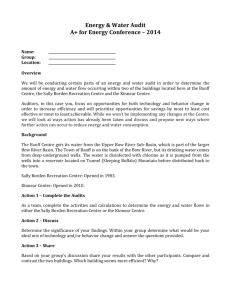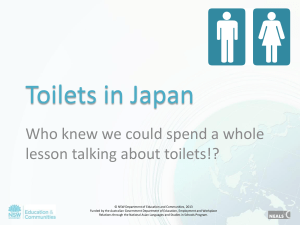School Construction Insurance Pool, Inc
advertisement
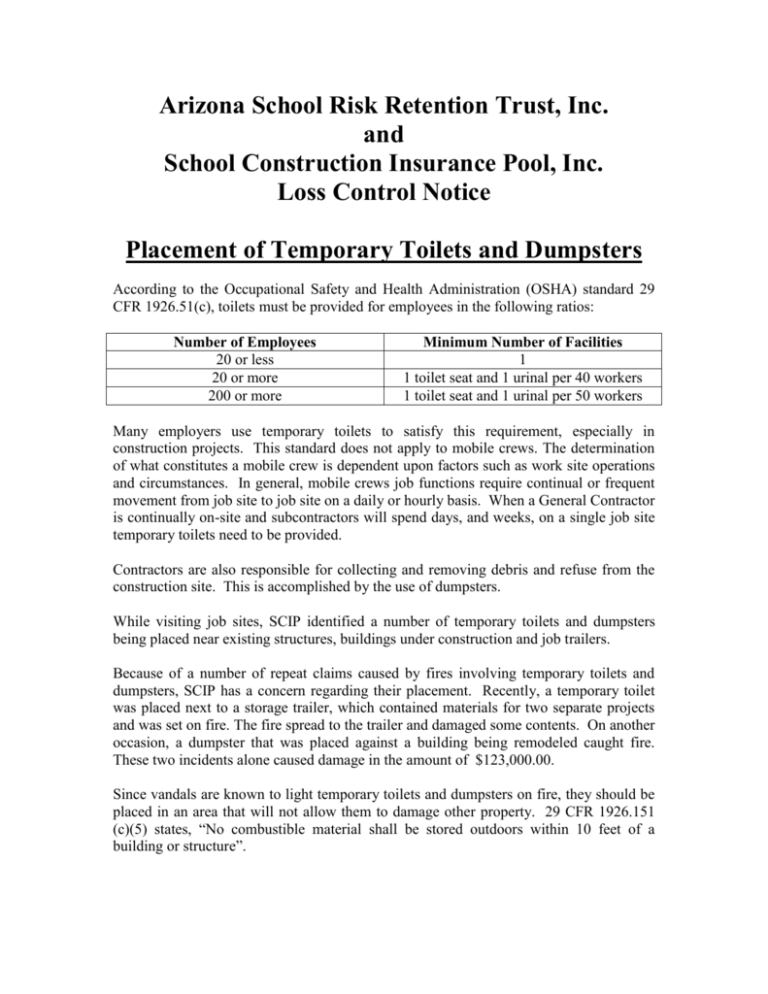
Arizona School Risk Retention Trust, Inc. and School Construction Insurance Pool, Inc. Loss Control Notice Placement of Temporary Toilets and Dumpsters According to the Occupational Safety and Health Administration (OSHA) standard 29 CFR 1926.51(c), toilets must be provided for employees in the following ratios: Number of Employees 20 or less 20 or more 200 or more Minimum Number of Facilities 1 1 toilet seat and 1 urinal per 40 workers 1 toilet seat and 1 urinal per 50 workers Many employers use temporary toilets to satisfy this requirement, especially in construction projects. This standard does not apply to mobile crews. The determination of what constitutes a mobile crew is dependent upon factors such as work site operations and circumstances. In general, mobile crews job functions require continual or frequent movement from job site to job site on a daily or hourly basis. When a General Contractor is continually on-site and subcontractors will spend days, and weeks, on a single job site temporary toilets need to be provided. Contractors are also responsible for collecting and removing debris and refuse from the construction site. This is accomplished by the use of dumpsters. While visiting job sites, SCIP identified a number of temporary toilets and dumpsters being placed near existing structures, buildings under construction and job trailers. Because of a number of repeat claims caused by fires involving temporary toilets and dumpsters, SCIP has a concern regarding their placement. Recently, a temporary toilet was placed next to a storage trailer, which contained materials for two separate projects and was set on fire. The fire spread to the trailer and damaged some contents. On another occasion, a dumpster that was placed against a building being remodeled caught fire. These two incidents alone caused damage in the amount of $123,000.00. Since vandals are known to light temporary toilets and dumpsters on fire, they should be placed in an area that will not allow them to damage other property. 29 CFR 1926.151 (c)(5) states, “No combustible material shall be stored outdoors within 10 feet of a building or structure”. Site security (i.e. perimeter fencing) needs to be implemented and maintained to limit access to the temporary toilets and dumpsters by potential vandals. When dumpsters are placed near a building, a means of access is provided to the roof and/or worksite. Preplanning the placement and security of these items can minimize the risk of damage caused by these types of incidents. Some other considerations are as follows: It is advisable to recommend the placement of dumpsters and temporary toilets downwind of occupied areas and away from building HVAC intakes to prevent indoor air quality odor issues and potential sanitation problems (pest). Wastes from temporary toilets and dumpsters need to be disposed of on a frequent, regular basis to prevent odors from garbage spoilage and the littering of the surrounding area from overfilled dumpsters. 29 CFR 1926.252(e) states, “All solvent waste, oily rags, and flammable liquids shall be kept in fire resistant covered containers until removed from the work site”. Arizona Revised Statutes (A.R.S. Title 49, Chapter 5) mandates that construction wastes placed in dumpsters that will eventually be delivered to a municipal landfill must no contain hazardous wastes or other regulated materials (i.e. asbestos containing materials, lead paint contaminated materials, solvents, paints, etc.). 29 CFR 1926.25(c) Housekeeping states, “Containers shall be provided for the collection and separation of waste, trash, oily and used rags, and other refuse. Containers used for garbage and other oily, flammable, or hazardous wastes, such as caustics, acids, harmful dusts, etc. shall be equipped with covers. Garbage and other waste shall be disposed of at frequent and regular intervals. If you should have any questions regarding this notice or any other loss control issue, please contact Mike Coppa at SCIP at (866) 252-7247, ext 271 or via email at mcoppa@the-trust.org. Thank you.
